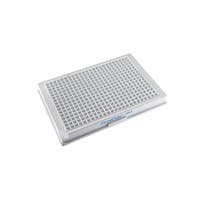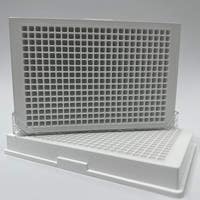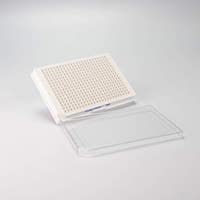
AlphaLISA Human PD-1/PD-L1 Binding Kit, 500 Assay Points
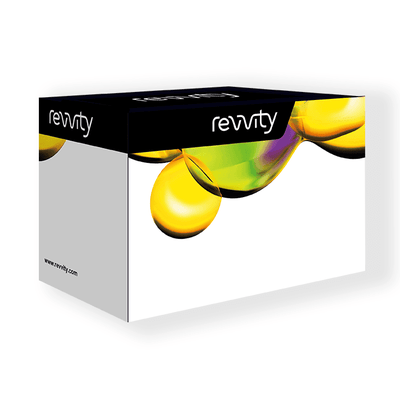
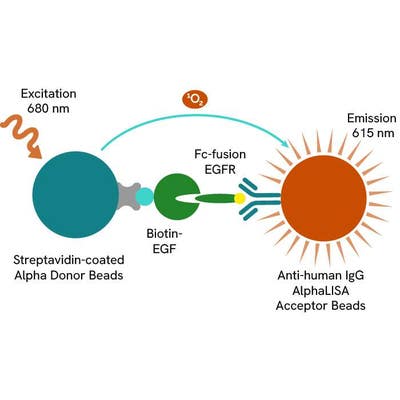
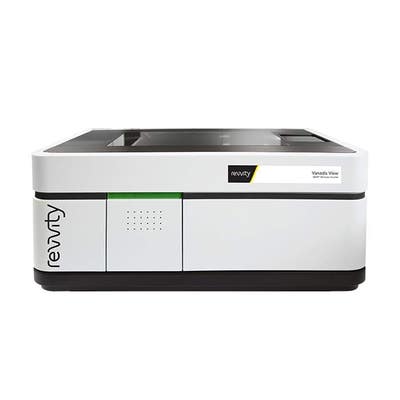 View All
View All
AlphaLISA Human PD-1/PD-L1 Binding Kit, 500 Assay Points
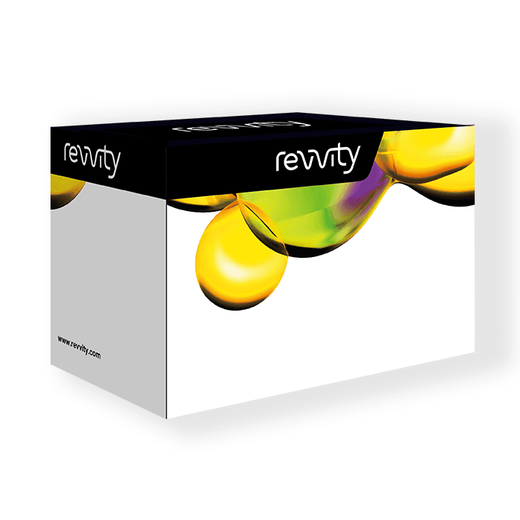
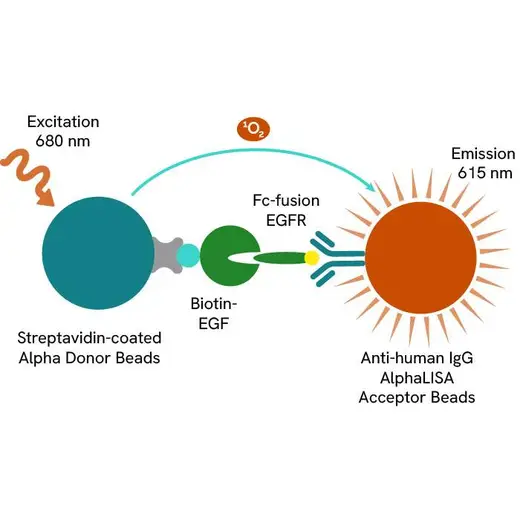
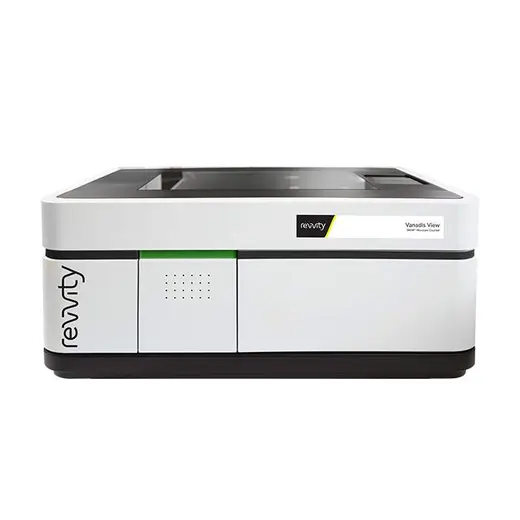
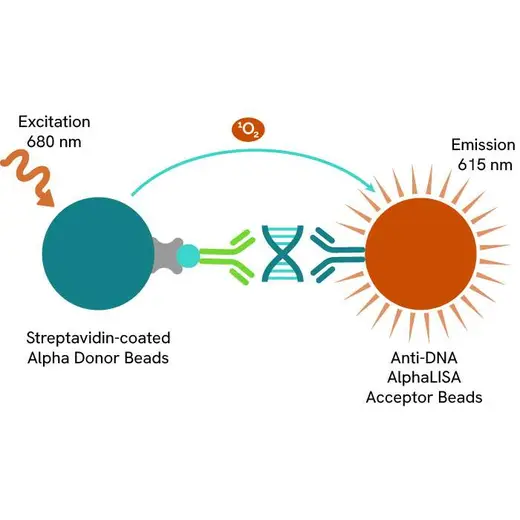
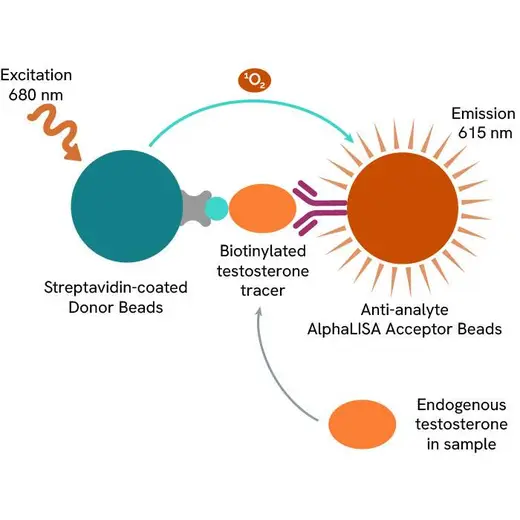
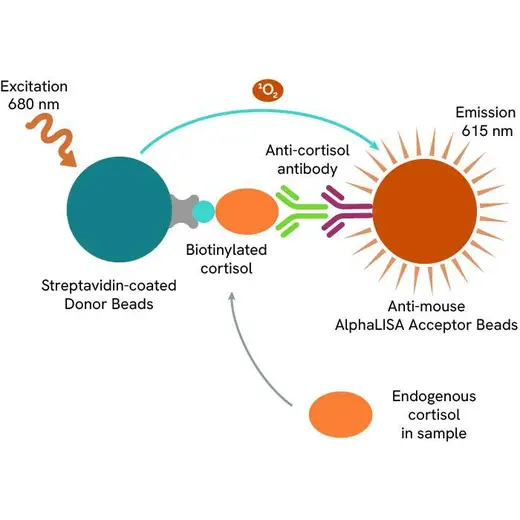
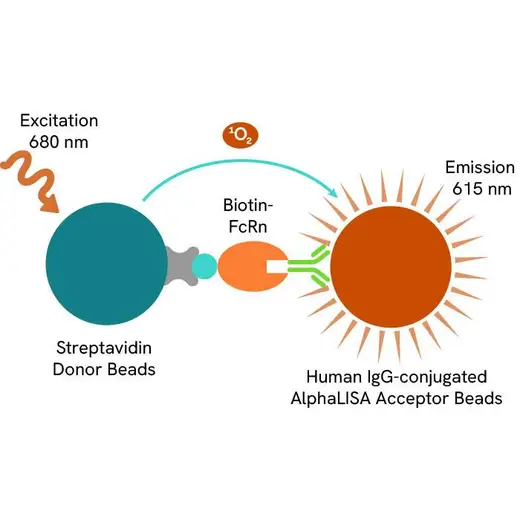
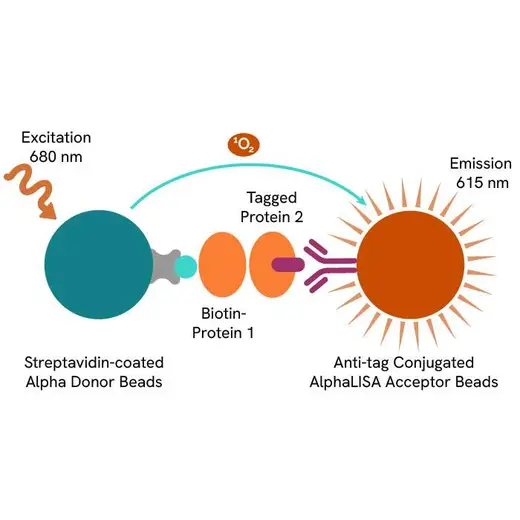
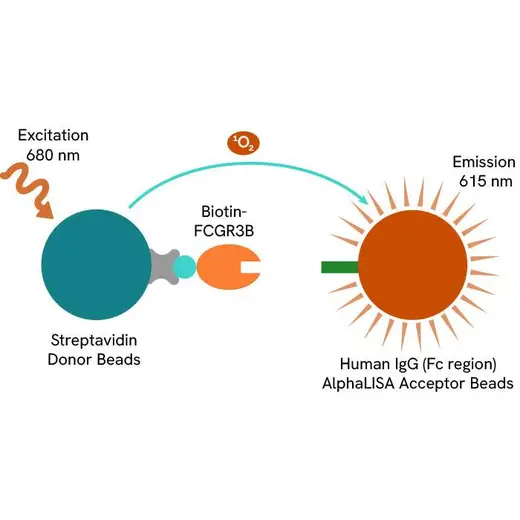
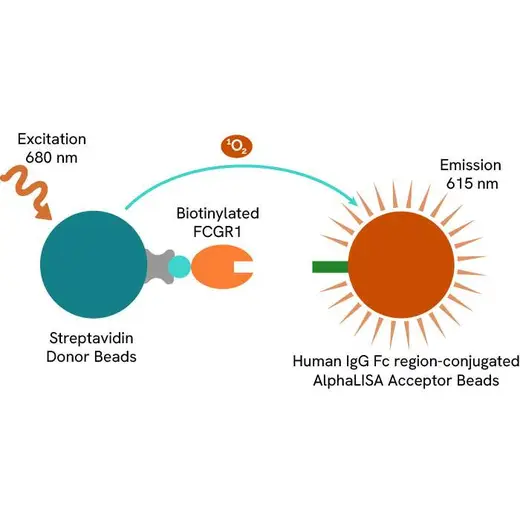
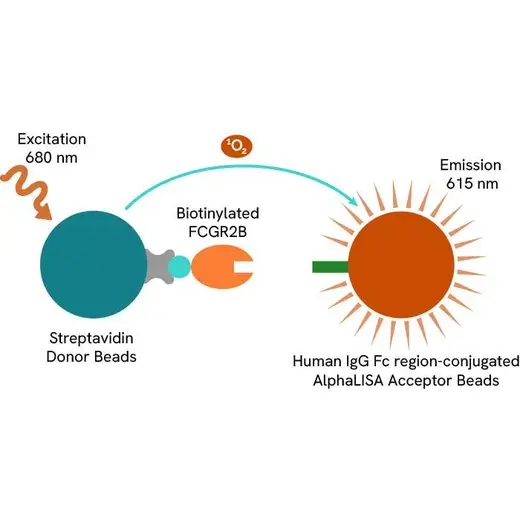












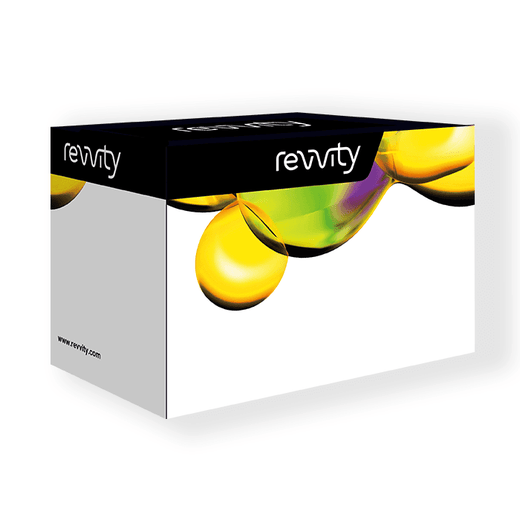
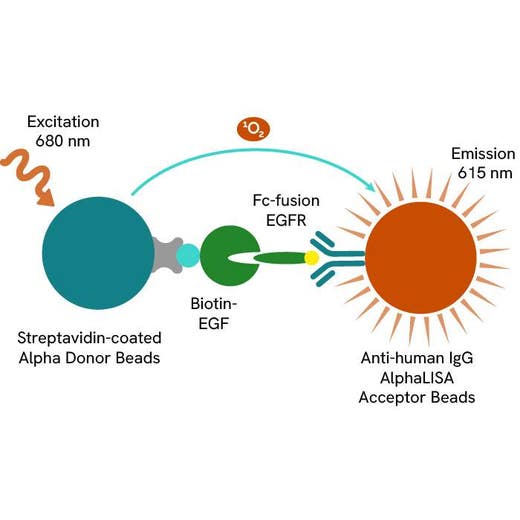
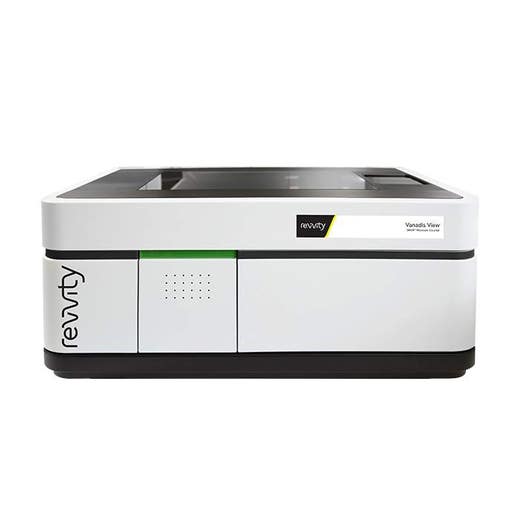
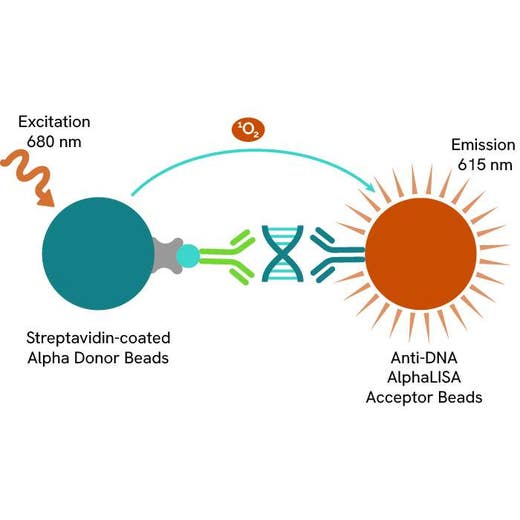
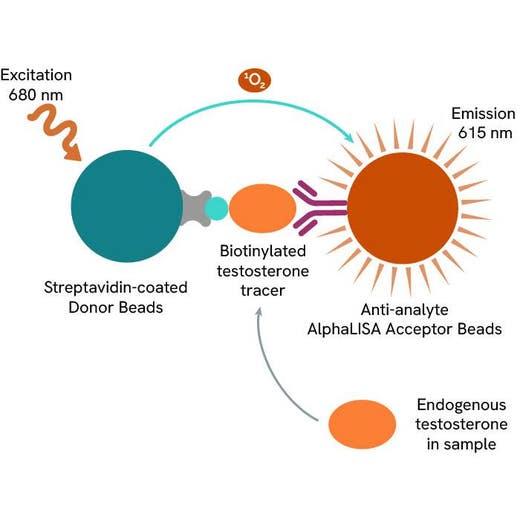
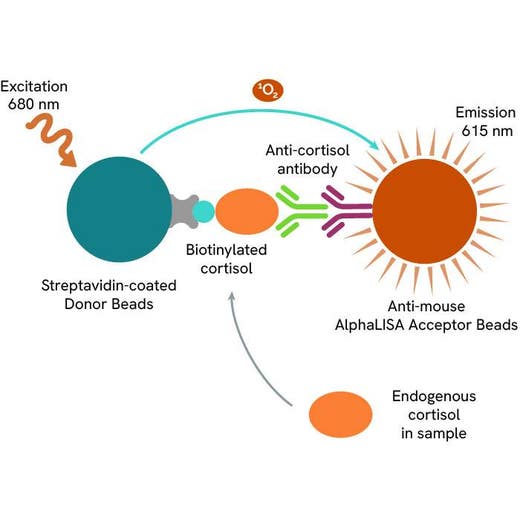
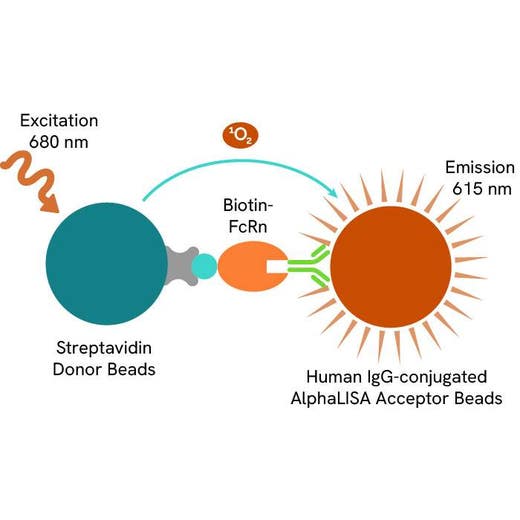
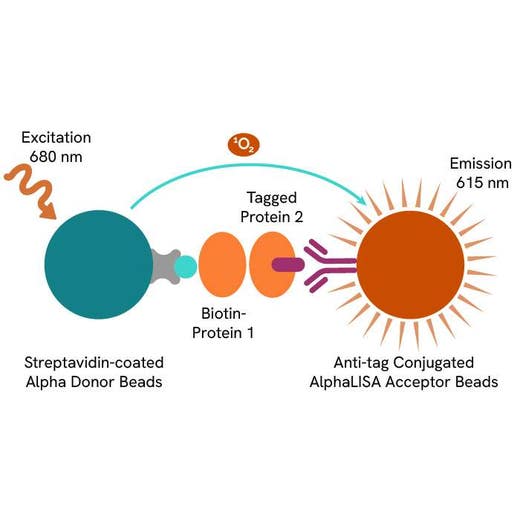
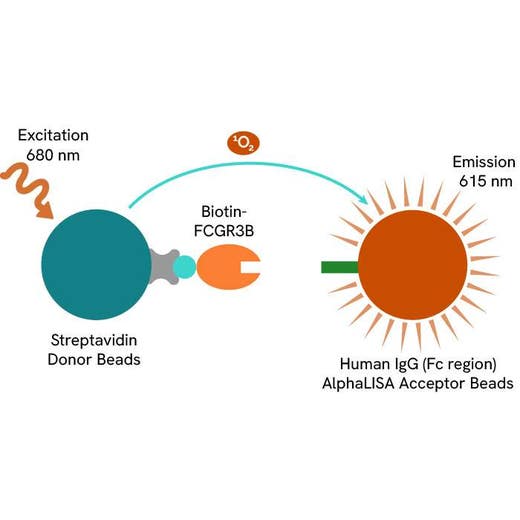
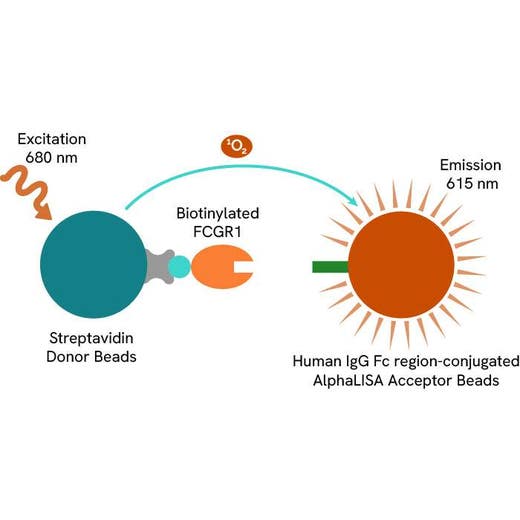
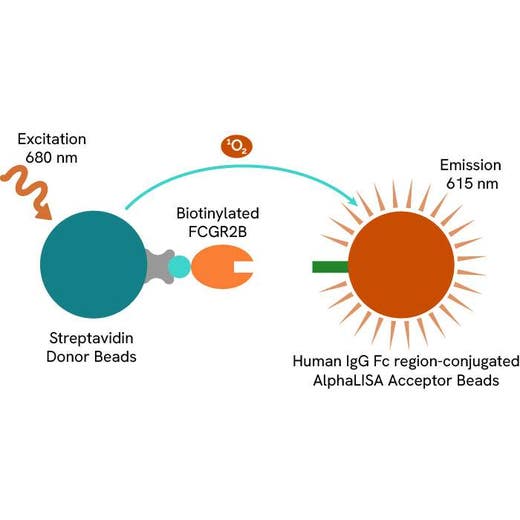












The AlphaLISA™ human PD-1/PD-L1 binding kit is designed for the detection of binding activity between human PD-1 and PD-L1, using a fast and simple homogeneous AlphaLISA assay (no wash steps). This assay can be used to screen for small molecules that inhibit binding, as a competitive ligand binding (CLB) assay to screen therapeutic blocking antibodies, and for potency assays.
For research use only. Not for use in diagnostic procedures. All products to be used in accordance with applicable laws and regulations including without limitation, consumption and disposal requirements under European REACH regulations (EC 1907/2006).
| Feature | Specification |
|---|---|
| Application | Protein-Protein Interaction |
| Sample Volume | 10 µL |
The AlphaLISA™ human PD-1/PD-L1 binding kit is designed for the detection of binding activity between human PD-1 and PD-L1, using a fast and simple homogeneous AlphaLISA assay (no wash steps). This assay can be used to screen for small molecules that inhibit binding, as a competitive ligand binding (CLB) assay to screen therapeutic blocking antibodies, and for potency assays.
For research use only. Not for use in diagnostic procedures. All products to be used in accordance with applicable laws and regulations including without limitation, consumption and disposal requirements under European REACH regulations (EC 1907/2006).























AlphaLISA Human PD-1/PD-L1 Binding Kit, 500 Assay Points























AlphaLISA Human PD-1/PD-L1 Binding Kit, 500 Assay Points























Product information
Overview
This kit is designed for the detection of binding activity between PD-1 and PD-L1 using a homogeneous AlphaLISA assay (no wash steps). This assay can facilitate the design and development of therapetics by using competitive binding.
Features:
- No-wash steps, no separation steps
- Ease-of-use: few addition steps, fast assay development
- Broad range of affinities: detect strong or weak interactions, from pM to mM affinity
- Distance: measure very large protein or antibody complexes – spanning up to 200 nm or more
- High avidity: multiple binding sites on each bead enables use of nanomolar concentrations of antibodies or proteins, as well as use of low affinity binders
AlphaLISA technology allows the detection of molecules of interest in buffer, cell culture media, serum and plasma in a highly sensitive, quantitative, reproducible and user-friendly mode. In an AlphaLISA assay, a biotinylated PD-1 binds to the Streptavidin-coated Alpha Donor beads, while His tagged PD-L1 is captured by Anti-His AlphaLISA Acceptor beads. When PD-L1 binding to PD-1 happens, Donor beads and Acceptor beads come into close proximity. The excitation of the Donor beads provokes the release of singlet oxygen molecules that triggers a cascade of energy transfer in the Acceptor beads, resulting in a sharp peak of light emission at 615 nm.
Programmed death ligand 1 (PD-L1), also known as "cluster of differentiation 274" (CD274) or B7 homolog1 (B7-H1) belongs to the growing B7 family of immune proteins and is expressed in tumor cells. PD-L1 binds to its receptor, PD-1, found on activated T cells, B cells, and myeloid cells, to modulate activation or inhibition. By binding to PD-1, PD-L1 may inhibit ongoing T-cell responses by inducing apoptosis and arresting cell-cycle progression and thus contribute to cancer growth. Monoclonal antibodies targeting PD-1 and PD-L1 are being developed as a means to boost the immune system for the treatment of non-small-cell lung cancer, melanoma, bladder, renal, and triple-negative breast cancers.
Specifications
| Application |
Protein-Protein Interaction
|
|---|---|
| Automation Compatible |
Yes
|
| Brand |
AlphaLISA
|
| Detection Modality |
Alpha
|
| Product Group |
Kit
|
| Sample Volume |
10 µL
|
| Shipping Conditions |
Shipped in Blue Ice
|
| Target |
PD-1~PD-L1
|
| Target Class |
Binding Assay
|
| Target Species |
Human
|
| Technology |
Alpha
|
| Therapeutic Area |
Immuno-oncology
|
| Unit Size |
500 Assay Points
|
Image gallery






















AlphaLISA Human PD-1/PD-L1 Binding Kit, 500 Assay Points






















AlphaLISA Human PD-1/PD-L1 Binding Kit, 500 Assay Points






















Video gallery

AlphaLISA Human PD-1/PD-L1 Binding Kit, 500 Assay Points

AlphaLISA Human PD-1/PD-L1 Binding Kit, 500 Assay Points

Resources
Are you looking for resources, click on the resource type to explore further.
A healthy immune system protects the body, but dysfunction can lead to autoimmune diseases affecting various organs. Despite over...
Advance your autoimmune disease research and benefit from Revvity broad offering of reagent technologies
Chimeric antigen receptor (CAR) T-cell therapy has transformed the field of immuno-oncology providing a novel approach to treating...
SDS, COAs, Manuals and more
Are you looking for technical documents related to the product? We have categorized them in dedicated sections below. Explore now.
-
言語English国EU
-
言語English国United States
-
Lot number3353351Lot dateNovember 6, 2024
-
Lot number3266970Lot dateFebruary 1, 2024
-
Lot number3243609Lot dateDecember 14, 2023
-
Lot number3232525Lot dateNovember 1, 2023
-
Resource typeManual言語English国-


How can we help you?
We are here to answer your questions.































